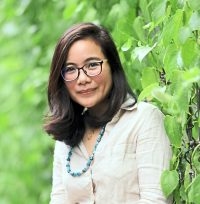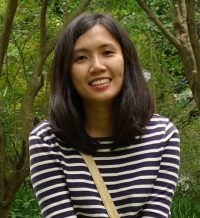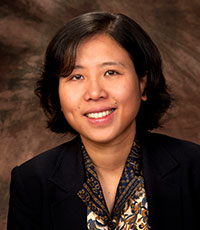keywords
Summer School 2022 will focus on four keywords – authoritarianism, environment, translation, and movement – as entry points for our discussions. Each keyword will feature two sessions led by an invited scholar; one session will be open to the public and the other only for participants accepted into the Summer School.

Authoritarianism
Keyword guide: Jini Kim Watson
To many Western observers, the recent resurgence of undemocratic regimes around the world – evidenced most noticeably in Russia’s recent invasion of Ukraine – seems to indicate a puzzling redux of mid-twentieth-century authoritarianism and fascism. But anti-democratic regimes in Asia, from military rule in Myanmar to the governments of Narendra Modi in India and Rodrigo Duterte in the Philippines, tell a very different story. Taking Asia as our starting point, how might we understand authoritarianism as a more complex and global phenomenon, and one that is centrally entangled with the histories of colonialism, decolonization, and postcolonial national development? In the sessions for the “Authoritarianism” keyword, we will attempt to do three things: 1) decenter theories of autocracy by considering it through the lens of (post)colonial and global south histories; 2) examine the way cultural production can work to both resist repressive regimes and challenge sedimented tropes around authoritarianism; and 3) explore the problem of authoritarianism through a comparative, inter-Asia perspective.

Bio: Dr. Jini Kim Watson is Associate Professor of English and Comparative Literature at New York University. Her teaching and research lie at the intersection of postcolonial literary studies, the urban humanities, and studies of cultural and political modernity during the global cold war. She is the author of Cold War Reckonings: Authoritarianism and the Genres of Decolonization (Fordham UP, 2021), and The New Asian City: Three-dimensional Fictions of Space and Urban Form (Minnesota UP, 2011). She has also co-edited, with Gary Wilder, the collected volume, The Postcolonial Contemporary: Political Imaginaries for the Global Present (Fordham UP, 2018).

Keyword guide: June Rubis
As multiple ecological systems interact with climate change and new disease patterns in a complex, interconnected world, dynamic responses are required to address escalating ecological crises. Yet there is a widespread tendency for institutions and powerful actors to commit to particular top-down measures that emphasise control and hegemony. From a conservation standpoint, Indigenous and local communities are often problematized as barriers towards the environment, and therefore as needing to be restricted in practice and place. If Indigenous knowledge (or TEK: traditional ecological knowledge) is acknowledged, it is often from a paradigm that expects Indigenous communities to remain unchanged over time despite shifting environmental and socio-political conditions. Indigenous knowledge has typically been made abstract, extracted as mere “data” from its emplaced context, and either ignored or re-configured to fit the contemporary conservation framework.
In the sessions for the “Environment” keyword, we will pay attention to the diverse knowledge forms and practices that Indigenous and local communities hold in relation to the environment. Using examples from Southeast Asia, we ask, what multiple strategies do Indigenous communities employ to uphold their rights over their native territorial domains, which includes conservation landscapes? How might a more ethical approach and understanding of Indigenous strategies contribute to better forms of conservation and research? Through respecting contemporary Indigenous ways and relations with the environment, what different understandings of conservation practices may arise? In doing so, this brings vital opportunities to understand contrasting power relations within responses to environmental crises, and connect them to revitalising human-environment relations and social justice.
What multiple strategies do Indigenous communities employ to uphold their rights over their native territorial domains? How might a more ethical approach and understanding of Indigenous strategies contribute to better forms of conservation and research?

Bio: Dr. June Rubis is an environmental geographer working on environmental governance, geographies of conservation, and Indigenous studies with a regional focus on Borneo and, more recently, Australia. She has 12 years of practical conservation field experience in Borneo. Conducting partnerships with Indigenous communities is central to her work, and she is currently Co-Chair of Documenting Territories of Life with the International Consortium of Indigenous and Communities Conserved Areas (ICCA). Her passion for environmental issues began with her witnessing land degradation in Sarawak, Malaysian Borneo in her family’s native territories, and elsewhere in Borneo, where she understood the issues first-hand as a Bidayuh Bornean woman. She is currently Postdoctoral Fellow in Indigenous Environmental Studies at the University of Sydney’s Environment Institute and Department of Geosciences, and a member of the Institute for Freshwater Fish Futures (IFFF) and several academic collectives seeking to reimagine new futures in academia and beyond.

Keyword guide: Show Ying Xin
Translation is more than a linguistic exercise that transmits equal meaning from one language to the other; it is also a way of knowing, a process of (re)writing, a medium for dissemination, and a site for transformation. The prefix “Inter-,” in Inter-Asia cultural studies, can therefore be read as connoting the practice of translation. The sessions for this keyword will view translation as both a concept and a practice, focusing particularly on the role of translation in the dissemination of radical thought and the formation of autonomous knowledge in Asia. In other words, translation can be a political act for navigating and making visible knowledge and cultural productions that are overshadowed by dominant frameworks, discourses, and powers. Building on examples from Northeast and Southeast Asia, the sessions for the “Translation” keyword will examine the following questions: In what way does inter-referencing within Asia take place in translation? How might translation tackle the politics of inequality such as issues concerning language hegemony, gender, race, and colonialism in Asia? To what extent is the mediatory power of the English language confronted and challenged in Inter-Asia translation? How do scholar-translators intervene in the formation and dissemination of knowledge in and about Asia?

Bio: Dr. Show Ying Xin is a Lecturer at the School of Culture, History and Language, and Deputy Director of the Malaysia Institute at the College of Asia and the Pacific, the Australian National University. Her work explores the history and culture of migration, decolonisation, and the impact of the Cold War on Asian societies through the prism of literature and the arts. Her current project examines the cultural history of Chinese literature in Malaya from 1945 to 1969. She co-edited (with Ngoi Guat Peng) Revisiting Malaya: Uncovering Historical and Political Thoughts in Nusantara (Petaling Jaya: Strategic Information and Research Development Centre, 2020), authored the Chinese translation of Alfian Sa’at’s flash fiction Malay Sketches (Malai sumiao 馬來素描, Taipei: Brilliant Time, 2020 [Traditional Chinese version]; Shanghai: 51 Personae, 2022 [Simplified Chinese version]), and coordinated and copyedited the Chinese translation of Syed Hussein Alatas’ The Myth of the Lazy Native (Landuo tuzhu de misi 懶惰土著的迷思 , Hsinchu: National Yang Ming Chiao Tung University Press, 2022).

Keyword guides: Tharaphi Than and Hilary Faxon
The sessions for the keyword, “Movement,’ will explore how people move, voluntarily, or through force, from one place to another, from one time to another, and from one ideology to another. We conceptualise these physical and political movements through three interconnected themes: dispossession, diaspora, and dissent. By focusing on displacement and its consequences, dispersion and mobility, and political mobilisation, we tie the keyword of movement to current events in Myanmar and to larger trends across the region. We will investigate what inter-Asian and global events underpin people’s movements and how people in Myanmar negotiate, navigate, resist, and interact with these movements. We will also share our experiences as activist scholars so that participants will not only read these events but also contribute to movement-building at a grassroots level.
For our first, public session, we will offer a framing of “movement” through the lens of dispossession, diaspora, and dissent and provide participants with the opportunity to learn from Myanmar activists. Our second, closed session will focus on building a scholar-activist toolbox. Drawing on our ongoing work together as scholar-activists in the Myanmar Spring Revolution, we will discuss key challenges and provide principles and practices for engaged, emancipatory scholarly practice in an interactive workshop.
What inter-Asian and global events underpin people’s movements, whether voluntarily or through force, from one place to another, from one time to another, and from one ideology to another? How do people negotiate, navigate, resist, and interact with these movements? How can activist scholars not only read these events but also contribute to movement-building at a grassroots level?

Bio: Dr. Tharaphi Than is Associate Professor in the Department of World Languages and Cultures at Northern Illinois University. Her research focuses on women, print media, dissent, and decolonization.

Bio: Dr. Hilary Faxon is Ciriacy-Wantrup Postdoctoral Fellow in the Department of Environmental Science, Policy and Management at the University of California, Berkeley. She conducts participatory research to advance environmental justice in Myanmar and Southeast Asia.

